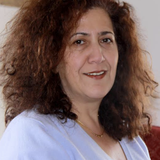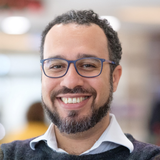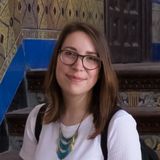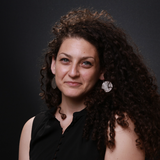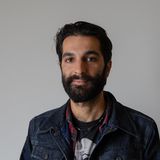The past months we have witnessed a humanitarian catastrophe unfold caused by unprecedented violence at the hands of the Israeli state. After decades of occupation, apartheid, and violence inflicted upon the Palestinians by the state now known as Israel, the situation has escalated since the violent attack by Hamas on October 7th of last year. As of this writing, more than 35.000 Palestinians in Gaza have been killed; men, women and children. Two million people in Gaza have been displaced. Israeli bombings have destroyed hundreds of thousands of homes, schools, hospitals and an entire civil infrastructure. The health system has collapsed and humanitarian aid has been blocked from entering Gaza. Yet, the response by Western governments was a deafening silence. The Dutch government has denounced the attack by Hamas but meanwhile continues to support the atrocities committed by Israel. The ongoing humanitarian crisis in Gaza has ignited protests and solidarity movements both nationally and internationally calling for a ceasefire and liberation.
In the face of these atrocities causing mass suffering, and the complicity of our governments; should mental health professionals remain neutral and thus refrain from taking a political stance, or is it a moral imperative to fight social injustice and pathology? Is there a therapeutic potential to the solidarity movements? And what are the potential consequences of being an activist-clinician? During this programme, we will reflect on these topics.
About the speakers
Rana Nashashibi is director of the Palestine Counselling Centre. Rana is Palestinian, born in Jerusalem and continues to reside there. She works as a clinician, writer, lecturer, as a leader in the women’s movement and as community activist. Rana has introduced and developed new directions in the provision of mental health and counseling services in the Palestinian community.
Lara Sheehi is a Lebanese clinician and assistant professor of Clinical Psychology at the George Washington University. Her work is on decolonial struggles as well as power, race, class, and gender constructs and dynamics within psychoanalysis. She co-authored the book “Psychoanalysis Under Occupation: Practicing Resistance in Palestine”.
Sobhi Khatib is a public speaker and storyteller from a Palestinian background. His work is ondiversity, inclusion, innovation and communication. He has designed and delivered talks, trainingsand academic courses on those topics for the last two decades. Sobhi’s educational background is in Psychology, Human Rights and Conflict Management.
Ilse Verhagen is a child psychologist and PhD student. Her clinical and research work is focused on providing mental health care for children and families from refugee backgrounds.
Samrad Ghane is a clinical psychologist, medical anthropologist and researcher. He develops culturally sensitive mental health care programs for migrants and refugees in The Netherlands.

